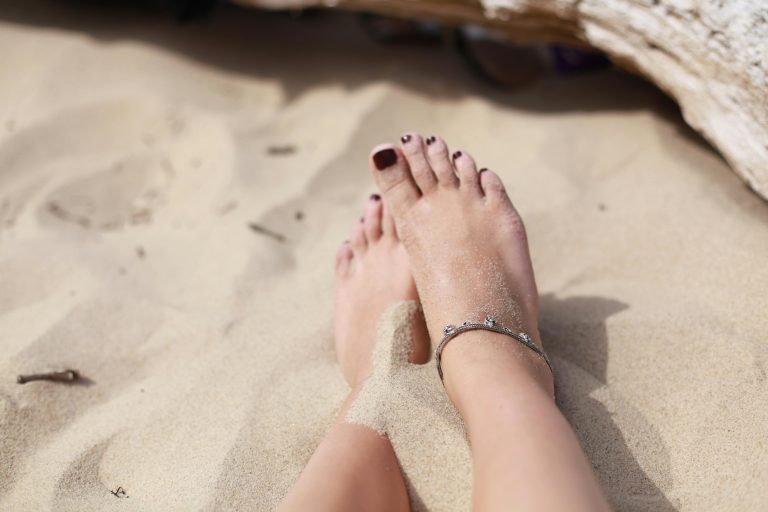Foot sores can be a common and painful problem, especially in Singapore’s warm and humid climate. These sores, which may appear as ulcers, blisters, or other skin irritations, can result from various causes and can significantly impact mobility and daily activities if left untreated. Proper foot care is essential to prevent and treat foot sores, particularly for individuals with conditions like diabetes, which can increase the risk of complications.
What Are Foot Sores?
Foot sores are open wounds or irritated areas on the feet that can range from mild to severe. They may appear as blisters, ulcers, or cuts and can be caused by pressure, friction, or infection. While minor foot sores can heal with proper care, more serious sores, especially in individuals with diabetes, may require medical attention to prevent complications such as infections or tissue damage.
Common Causes of Foot Sores
Several factors can contribute to the development of foot sores, including:
- Poorly Fitting Shoes: Wearing tight or ill-fitting shoes can cause friction and pressure, leading to blisters, calluses, or ulcers.
- Diabetes: Diabetic foot ulcers are a serious concern for people with diabetes. High blood sugar levels can damage nerves (diabetic neuropathy) and impair circulation, making the feet more vulnerable to sores and infections.
- Infections: Fungal infections like athlete’s foot can cause redness, itching, and sores between the toes and on the soles of the feet.
- Injury or Trauma: Cuts, scrapes, or injuries to the feet can develop into sores if not properly treated.
- Circulatory Issues: Poor blood circulation, particularly in individuals with peripheral artery disease (PAD), can lead to slow-healing foot sores or ulcers.
- Pressure Ulcers: People who spend long periods standing, walking, or sitting in one position can develop pressure sores on their feet, especially in areas like the heels.
Symptoms of Foot Sores
Foot sores can present in various forms, depending on the cause. Common symptoms include:
- Redness or Swelling: The affected area may appear red, swollen, or irritated.
- Blisters or Ulcers: Sores may begin as blisters or develop into open ulcers if the skin breaks.
- Pain or Tenderness: Foot sores can cause pain or tenderness, particularly when pressure is applied to the area.
- Discharge or Pus: Infected foot sores may produce discharge, pus, or have an unpleasant odor.
- Delayed Healing: Sores that do not heal after several days or worsen over time may indicate an underlying issue, such as poor circulation or infection.
When to Seek Medical Attention
While many foot sores can be treated at home, you should seek medical care if:
- The sore is large, deep, or not healing after a few days.
- There are signs of infection, such as redness, swelling, warmth, pus, or fever.
- You have diabetes or circulation issues, as these conditions increase the risk of complications.
- You experience severe pain or notice discoloration of the skin around the sore.
Treating Foot Sores
Treatment for foot sores depends on the severity and cause. Common treatments include:
- Cleaning the Wound: Gently clean the affected area with mild soap and water. Avoid using harsh antiseptics that may irritate the skin.
- Applying Antiseptic Cream: Use an antiseptic cream or ointment to prevent infection and promote healing. Cover the sore with a sterile bandage to protect it from further irritation.
- Changing Dressings Regularly: Keep the sore clean and covered, changing the dressing at least once a day or as recommended by a healthcare provider.
- Managing Pain and Inflammation: Over-the-counter pain relievers, such as ibuprofen or paracetamol, can help reduce pain and swelling.
- Diabetic Foot Care: If you have diabetes, it’s crucial to monitor your feet daily for signs of sores or infections. Seek medical attention promptly if you notice any abnormalities.
Preventing Foot Sores
Taking care of your feet can prevent foot sores and keep your feet healthy. Here are some steps you can take to avoid foot sores:
- Wear Properly Fitting Shoes: Ensure that your shoes fit well and provide adequate support. Avoid shoes that are too tight or too loose, as both can cause friction and pressure.
- Keep Feet Dry: Moisture can contribute to fungal infections and skin breakdown. Keep your feet dry, especially between the toes, and wear moisture-wicking socks.
- Inspect Feet Regularly: Check your feet daily for signs of sores, blisters, or cuts. This is especially important if you have diabetes or circulatory issues.
- Moisturize Dry Skin: Use a foot cream to keep the skin on your feet soft and prevent cracking, but avoid applying lotion between your toes.
- Trim Toenails Properly: Trim your toenails straight across to prevent ingrown toenails, which can lead to sores or infections.
- Avoid Walking Barefoot: Walking barefoot increases the risk of cuts, scrapes, and injuries, particularly in public areas like gyms or pools.
Living with Chronic Foot Sores
For individuals with chronic conditions such as diabetes, foot care is critical. Untreated foot sores can lead to serious complications, including infections, gangrene, and in severe cases, amputation. Regular checkups with a healthcare provider can help monitor foot health and prevent long-term damage.
At Igaku, we specialize in foot care for individuals at risk of developing foot sores or other complications. Whether you need advice on diabetic foot care or treatment for a foot ulcer, our team is here to help. We offer in-person consultations at our clinics and teleconsultations via WhatsApp for your convenience.
Read our other articles here.






